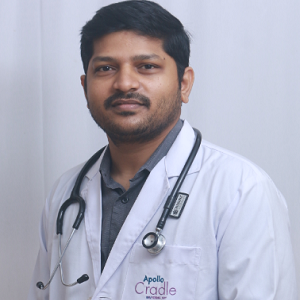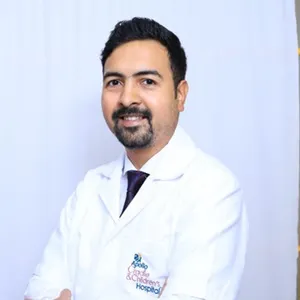Surgery for infants, kids, and teenagers falls under the medical speciality of paediatric surgery. There are several sub-specialities of paediatric surgery, each with its focus and area of expertise. Pediatric surgeons collaborate with other paediatric specialists like paediatricians, anesthesiologists, and nurses to give their patients comprehensive care.
Diagnosing and treating diseases of the male and female urinary tracts is the focus of the medical speciality of urology. The kidneys, ureters, bladder, and urethra are all parts of the urinary tract. The prostate, seminal vesicles, and other male reproductive organs are also covered by urology.
Types of Pediatric Surgery
There are several sub-specialities of paediatric surgery, each with its focus and area of expertise.
- Neonatal Surgery: Newborns and infants up to one month old can have this kind of surgery. Surgery performed on newborns may involve removing tumours, treating infections, or correcting birth defects.
- Pediatric Oncology Surgery: This particular kind of surgery is used to identify and treat cancer in young patients. Surgery for paediatric cancer may entail lymph node removal, tumour removal, and biopsy.
- Pediatric Trauma Surgery: This kind of surgery treats children's injuries brought on by mishaps, falls, or other traumatic events. Repairing fractures, treating burns, or stabilising internal injuries are just a few of the procedures that paediatric trauma surgery may entail.
- Pediatric Urology Surgery: This particular surgery treats children with urinary tract problems. Some examples of paediatric urology surgery procedures include removing kidney stones, treating urinary tract abnormalities, or fixing hypospadias.
- Pediatric Cardiothoracic Surgery: Children with heart and lung conditions may undergo this kind of surgery to treat them. Pediatric cardiothoracic surgery may include procedures for the treatment of pulmonary conditions, the removal of tumours, or the repair of congenital heart defects.
- Pediatric Neurosurgery: Children with brain and nervous system disorders may undergo this kind of surgery to treat them. Treatments for epilepsy, spinal cord injuries, and brain tumours can all be done during paediatric neurosurgery procedures.
- Pediatric orthopaedic Surgery: Children who suffer from musculoskeletal disorders undergo this kind of surgery to treat them. Children who need paediatric orthopaedic surgery may need procedures to treat scoliosis, fix limb deformities, or fix fractures.
Complications
Infections and stones are the most frequent urology-related complications. The kidneys, bladder, and urinary tract can become infected. Kidney and bladder stones can develop and cause discomfort. Incontinence and blockages are additional issues.
- Infection: UTIs (Urinary Tract Infections) are frequent, particularly in women, and are more likely to happen when a patient has diabetes or a compromised immune system.
- Scarring and adhesions: Scarring and adhesions can develop after urological procedures, particularly those involving open surgery. Pain and discomfort may result; in some instances, the child may need additional surgery to fix it.
- Blockages: Any obstruction can stop the flow of urine and result in urinary retention, which can be a serious issue that needs to be treated immediately by a doctor.
- Erectile Dysfunction: The inability to obtain or maintain an erection is known as erectile dysfunction. It is a potential side effect of urological procedures involving the prostate or other areas of the male reproductive system.
- Incontinence: Incontinence is a frequent side effect of urinary tract disorders that can cause embarrassment and social withdrawal.
Who Qualifies for Pediatric Surgery and Urology Surgery?
Pediatric surgery comes in wide varieties, each with specific prerequisites for participation. However, in general, paediatric surgeons only accept patients who are younger than 18 and have a surgically treatable condition.
Birth defects, cancerous tumours, gastrointestinal problems, and urological conditions are common conditions that may make a child a candidate for surgery. Surgery might also be advised for kids who have sustained severe wounds like burns or fractures.
Not all children who require surgery will be eligible. The child's condition might occasionally be too severe or complicated for surgery to be a viable treatment option. The child might need another form of specialised treatment or surgery in other situations because of additional health issues or risk factors.
Conclusion
Pediatric surgery and urology are crucial medical subspecialties that support the safety, well-being, and health of kids and teenagers. Young people can access treatments that can enhance their quality of life if they receive the proper diagnosis and treatment from a paediatric surgeon or urologist.
Request an appointment at Apollo Cradle, Bengaluru - Brookefield. Call 1860-500-4424 to book an appointment.
Pediatric surgery is generally safe, but, as with any surgery, there are potential risks and complications. Your child's surgeon will discuss these risks with you before the procedure.
Your child's urologist will conduct a thorough evaluation to determine the cause of their symptoms and recommend a treatment plan. Treatment may involve medication, surgery, or other interventions.
In most cases, paediatric surgery will leave a scar, but the size and location of the scar will depend on the type of procedure. Your child's surgeon will explain where the incision will be made and what to expect regarding scarring.
If your child is experiencing symptoms such as pain, difficulty urinating, or frequent urination, you should schedule an appointment with a paediatric urologist. They will conduct a thorough evaluation and recommend the appropriate treatment.
There are several steps parents can take to help prevent UTIs in children, including ensuring that they drink plenty of fluids, encouraging regular bathroom breaks, and practising good hygiene. Your child's urologist can provide more specific recommendations based on their case.

 92% Patient Satisfaction Score
92% Patient Satisfaction Score






